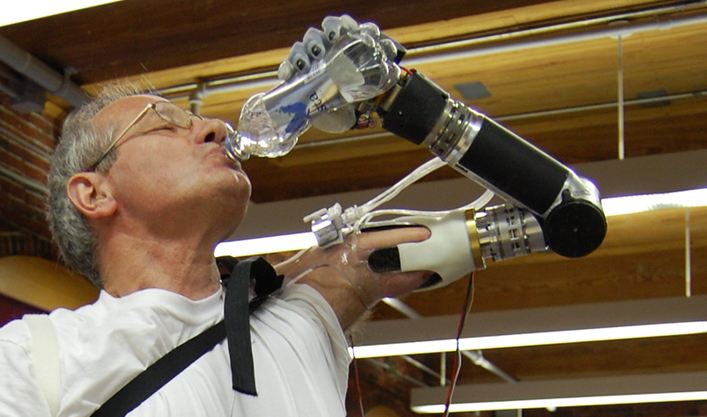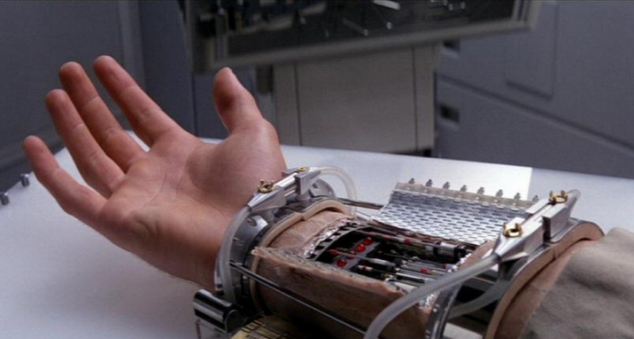
Wow — we have entered a rising zeitgeist of bionic people where cyber intelligence and tech can unite humans and robots together as one. It is very fascinating that on May 9, the U.S. Food and Drug Administration gave its stamp of approval to the high-tech prosthetic mind-controlled robotic device called the Deka Arm.
Also playfully referred to as the “Luke” arm (as a nod to Luke Skywalker’s robotic arm à la Star Wars ), this prosthetic arm can enable armless people to gain a functional limb. Electrical pulses are sent from electromyogram (EMG) electrodes that are hooked to the user’s muscles. The signals are processed and sent to a computer processor in the prosthesis, where the signals are then translated into a series of motions to be carried out. This arm has the same weight and dimensions as a real human arm, and is equipped with movement sensors, force sensors, and mechanical switches. It’s crazy to fathom that this fictional technical idea was impossible to conceive when Star Wars was first released. Now this advanced tech is a reality that will be readily available for public use.
The dexterity of this arm is incredible. As shown in the video above, the prosthetic arm wearer picks up eggs and places them down into a carton. The only limitation here is that the Deka Arm is not compatible with people who suffer from elbow or wrist joint limb loss.
Christy Foreman from the Office of Device Evaluation at the FDA’s Center for Devices and Radiological Health stated that “the Deka Arm System may allow some people to perform more complex tasks than they can with current prostheses in a way that more closely resembles the natural motion of the arm.” This technology is an incredible breakthrough for prosthetics and various applications of science.

This venture was completely backed and bolstered by the U.S. Army Researchy Office, Segway inventor Dean Kamen’s Deka Research team, and the Defense Advanced Research Projects Agency (DARPA). Deka also worked with Next Step Orthotics and Prosthetics and biodesigns, inc. to complete the project.
Story via Deka Research
Advertisement





